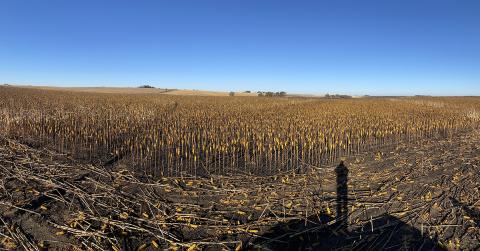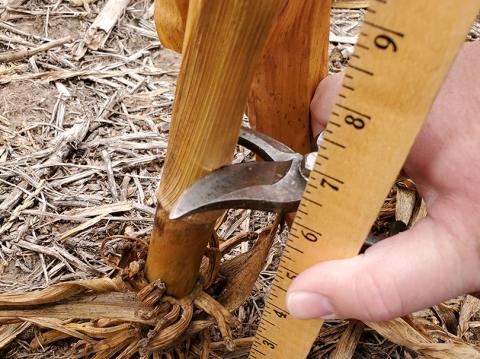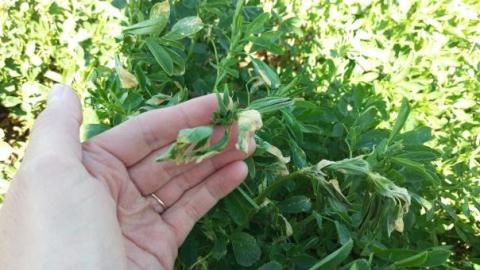Confronting Cropping Challenges Program to be Offered in November and December 2022
November 8, 2022
This year's program will provide growers with extension insights on corn tar spot, drift management and drought-related considerations such as irrigation, and herbicide and nutrient carryover.
FAQ for Fire Damage to Unharvested Crops and Harvested Ground
October 28, 2022
Nebraska Extension educators share recommendations for crops impacted by fire damage, highlighting grain and feed options for unharvested corn, what to expect of soil nutrient loss and techniques to avoid soil erosion.
Using a Cornstalk Nitrate Test to Evaluate Nitrogen Management Decisions
September 29, 2022
At the end of the season, a nitrate test can help determine whether the crop was under-, adequately or over-fertilized with nitrogen, resulting in the potential to significantly reduce input costs.
Adding Alfalfa to Corn-Soybean Rotation can Increase Profit, Reduce Nitrate Leaching
July 31, 2019
University research shows that adding alfalfa into corn-soybean rotations can help reduce the loss of nitrate to and increase the extraction of nitrate from aquifers while improving profitability.
Welcome Jeremy Milander, New Northeast Crops Educator
May 9, 2019
A new Nebraska Extension Educator, Jeremy Milander, will be working with four natural resource districts to develop an educational program on stabilizing groundwater nitrate in the Bazile Groundwater Management Area (BGMA).
Replacing Summer Fallow with Grain-Type Field Peas: Planting Population
March 8, 2016
Field Peas – Pros and Cons
Grain-type field pea is a spring-planted cool season crop that can be grown as an alternative for summer fallow in semiarid cereal-based, no-till cropping systems where wheat-corn-fallow and/or wheat-fallow are the main rotation strategies (Figure 1). Reasons for replacing summer fallow with field pea include:
Replacing Summer Fallow with Grain-Type Field Peas: Rotational Costs and Benefits
March 8, 2016




